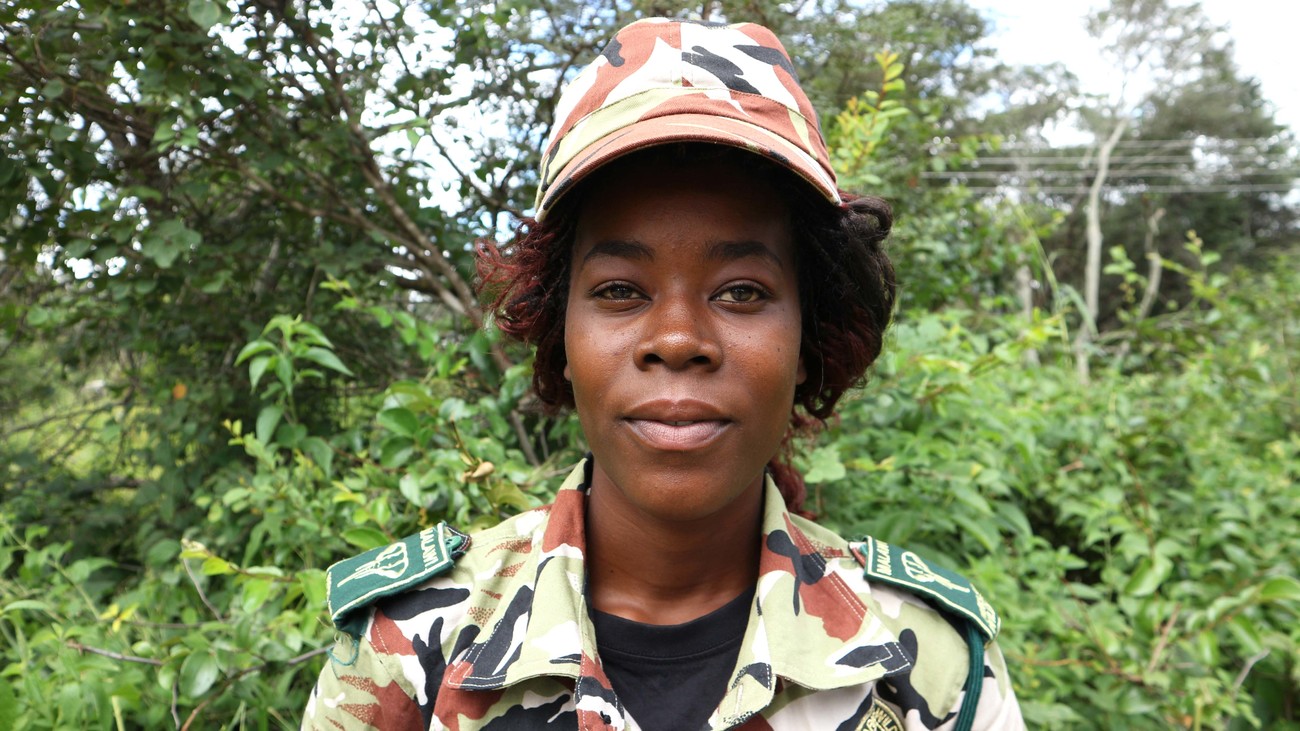Blog
Long’uro: one elephant’s story of immense resilience
Read morechanging perspectives: women rangers risk their lives to protect wildlife in Malawi and Zambia

The border of Malawi and Zambia is home to a 32,000 km2 area of land known as the Zambia-Malawi Trans frontier Conservation Area. It stretches across national parks, wildlife reserves, and communal lands. Despite its beauty, poaching is rampant – and the future of iconic wildlife like elephants, rhinoceros, and pangolins is on the line.
Eveles Magoli is one of the woman rangers trained to protect the Zambia-Malawi Trans frontier Conservation Area. With funding from the United States Agency for International Development (USAID), IFAW’s Malawi-Zambia Transboundary Landscape Project provided Magoli with strenuous training to become a wildlife ranger of high caliber. The work is physically and mentally tolling, yet she keeps going. Knowing that she is helping to save some of the world’s greatest species makes it all worth it.
“Sometimes, we spend days in the bush doing patrols. Our main focus is to enforce the law and make sure wildlife is protected from poachers and other threats,” says Magoli.
“There are times when we go for a day or two without bathing, especially when we patrol an area without streams or rivers. We also walk long distances sometimes more than 10 kilometres per day in the heat. There are three types of patrols and these are 48 hours, 72 hours, and 96 hours. In addition to carrying our own rations, we also have to carry our tents for nighttime accommodation. Our packs can be quite heavy.”
Only 21 years old, Magoli risks her life for wildlife every day in the field.
“Whenever I am on patrol, I know that my life is in danger from wild animals like elephants and lions, but we are trained on how to handle them. We also know there is a possibility of meeting armed poachers. Despite those threats, I have a duty to protect wildlife.”
Eveles Magoli is a heroine on the frontlines in more ways than just one. Not only is she protecting wildlife, but she is also challenging the status quo of what it means to be a ranger. By thriving in her position, she has proven to the community that women can make strong, intelligent, and powerful rangers, just like men. With this, comes new opportunities for women to make their voices heard and gain financial stability for themselves and their families. The perception of women in the field is changing, and we have rangers like Magoli to thank for that.
Our work can’t get done without you. Please give what you can to help animals thrive.
Unfortunately, the browser you use is outdated and does not allow you to display the site correctly. Please install any of the modern browsers, for example:
Google Chrome Firefox Safari